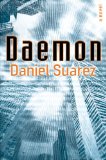This project is a small-scale research project that is intended to:
- Get some experience doing what we have been studying, namely research itself
- Write about educational research methods after using some of them
- Set personal learning objectives and then reflect on how they were met
I have never publicly discussed this process before I have it completed, and as my program at Lancaster University in E-Research and Technology Enhanced Learning focuses on participatory and networked learning, I thought I will work with my tutor and colleagues in the cohort as well as share this experience here on my blog.
While this is intended to be an original piece of research, it is within the context of a class, so the (proposed) research headings are slightly different than a pure research paper.
Working Title
Educational Explorations of Autoethnographic Inquiry: A Tale of 2 Teachers
Research Problem
Autoethnography is increasingly used as a research method, pushing the boundaries of qualitative inquiry by focusing on a phenomenon in the life of the researcher as the central aspect of study, and publishing the findings as a cultural critique. With online technologies making the entire research process more transparent and potentially interactive, the process and research intentions themselves may be explored more fully, as the steps can be studied as part of the process, rather than by looking only at the final, published product. Little is known about what the researcher learns and wants his or her readers to learn within the process of autoethnographic research.
Literature Review
This will focus on autoethnographic inquiry, what it is, why it is done, and what is learned through it. I am planning to focus around the work of Carolyn Ellis, Art Bochner, Deborah Reed-Danahay, and Jean Clandinin and Michael Connelly.
Purpose & Research Design
The purpose of this case study is to understand the intentions and learnings of researchers who engage in autoethnographic inquiry. This will be a qualitative research design, with a constructivism philosophical worldview. The strategy of inquiry will be case study. The research methods will be interview.
There are no expected ethical issues in this research. Participants will remain anonymous, with fictitious names being used and the transcripts from the research secured in my password-protected computer.
This research is important to me because I am interested in learning more about how autoethnography can be used as a method in online and distance education, particularly for its seeming relationship with reflective practice and transformative learning. This is part of a large research interest of mine, which I am seeking to begin exploring in this smaller research project. I hope to better understand this to ultimately help improve the effectiveness of online teaching and learning practice.
Methods
As this is an exploratory case study, there will be 2 people interviewed for this research. I will reach out to my network of colleagues and distribution lists to locate 2 people who have published autoethnographic inquiries (I have not actively looked for potential participants yet). Interviews will be conducted over the phone. Open-ended interview questions will be used:
- Why did you choose to use autoethnographic inquiry?
- Who is your intended audience?
- What intentions did you have for your readers?
- What role did technology play in your research?
- What did you learn in the process of this autoethnographic inquiry?
- If you were to conduct further autoethnographic inquiry, what would you do differently?
Interview results will be hand-transcribed and sent back to the participants for their review and approval.
Data Analysis
I will look for themes between the results; though need to develop this section more (for possible hand-coding?).
Findings and Next Steps
TBD
Personal Learnings
I will explore what I learned in doing this research project. I do need to develop personal learning objectives, though am not sure about the format for them and how many are realistic given the time and scope limitations.
References
Listed as used.

